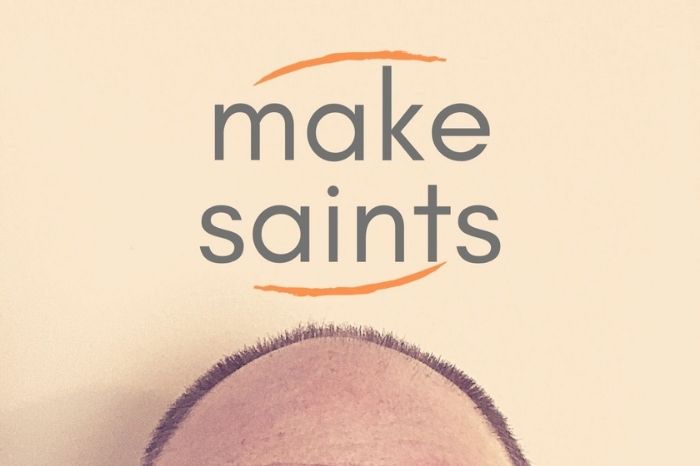Halloween is a holy day.
I was an adult before I realized that some Christians boycott Halloween. For me, Halloween was something everyone did. You dressed up, roamed the neighborhood looking for porchlights which equals nice people who give you candy.
We also brought our costumes to school so that we could have parties and parade around the school. I had one friend who didn’t participate, but he couldn’t participate in /any/ celebration. His family was Jehovah’s Witness, so he had to spend our elementary class parties in the school library. I don’t remember /anyone/ else not joining in, but I’m sure there were.
The thing about not digging on Halloween is that I do get it. Watching my pre-adolescent friends try to outgross each other, dressing up as fictitious mass murderers so popular in the ‘80s and ‘90s – it is hard to say these are examples of high moral standing.
And the principal event itself, of going around begging for things that have no nutritional value while threatening to “trick them” in some way if we do get our way – we’re teaching our kids both greed and extortion.
Of course, none of us /really/ sees it that way.
—
The irony for all of this talk is that Halloween is a Christian holiday. Well…sort of.
Halloween, Hallowe’en, All Hallows’ Eve is the evening before All Hallows’ Day, better known as All Saints’ Day. And All Saints’ Day is pretty self-explanatory. It is the day Christians celebrate the saints.
Now, I’m making this podcast called Make Saints and I’ve got this plan to never explicitly define or speak at length about what a saint is because, well, it’s a bit on the nose.
But this day is the day we honor them. Actually, we /hallow/ them, which means to honor as holy.
So we /hallow/the saints on November 1. What then is the Hallow’s Eve about?
Well…it’s about playing dead.
—
The thing we need to remember about Christians is that they are obsessed with death. Now, you might get the exact opposite impression from some of the people you know who yammer on about life, and really they aren’t all together wrong. It’s just missing this /other/ thing.
There’s a reason the people thought the first followers of Jesus were freaks and cannibals. They were always going on and on about this dead guy, eating his flesh and drinking his blood, and dying to themselves.
If you went to church on Easter, which, of course was inside someone’s house, you’d see people being dunked underwater, which is probably no big deal because we’re all familiar with baptism. But we might be a bit horrified by the pool being shaped like a sarcophagus. And we would get the very real impression that people were intentionally being drowned by the priest.
And what you would hear is that they were dying that day to be reborn.
Death and life are intertwined…and inseparable.
So if we fast forward to the medieval era, with more macabre tastes and experiences, you’d see yet another vision life and death.
So Christians started to play on All Hallows’ Eve – not unlike Mardi Gras and Fat Tuesday, preparing for the holy day ahead. And, with a bit of the same bite.
—
The idea of play, acting, telling scary stories: this stuff that is at the heart of Halloween: is a beautiful and rebellious act of learning and growing. In it, we explore our dreams and nightmares in ways that allow our waking minds some level of safety that only our unconscious generally affords us.
It allows us to face our demons in real life. And regard them as nothing but children in costumes.
Halloween gives us the chance to laugh in the face of evil and death and say /you can’t actually hurt me/.
And, as to all of that blessed candy we’ll accumulate and of which we will devise creative ways to dispose, our children will be treated to welcome and generosity.
As traditions go, there are few more fundamentally faithful than this.
Happy Halloween, all you ghouls and goblins
